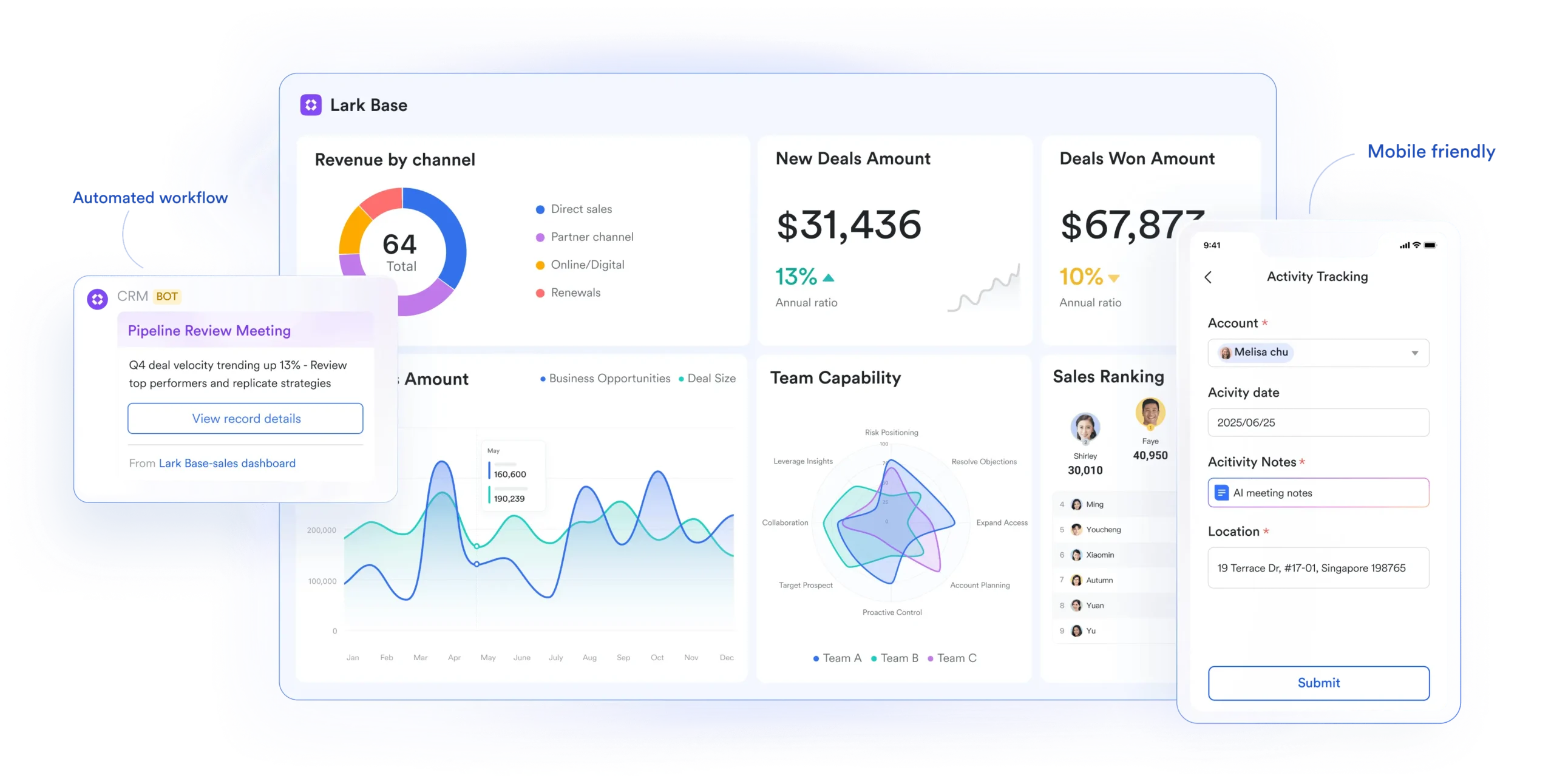It’s normal for teams to change because workers swap jobs, move to different projects, or even leave the firm. Companies need to make sure that essential information doesn’t go with people when they depart. When context is lost, onboarding might take longer, projects can be put on hold, and people may not be held accountable. That’s why businesses are employing new project management tools that can save, organize, and share information in ways that last longer than the people who work on the project.
Tools like Lark make it easy to keep track of information every day. Digital systems preserve structured databases, shared documents, and stored communications so that context doesn’t get lost when people switch jobs. This way, people who come after you will always have the information they need to do a good job.
Lark Base: Organizing records to support seamless teamwork
One of the worst things that may happen when workers leave their jobs is losing organized project data. Lark Base is a flexible approach to keep track of tasks that are still going on, customer information, and decision histories. For a lot of firms, Lark Base is more than simply a productivity tool; it’s also the connected CRM app that makes sure important information is always available and relevant.
- Changeable databases: Teams can keep track of project updates, customer records, or choices in ways that work for them.
- Dashboards for seeing: Leaders can see the big picture of efforts, which helps new leaders comprehend what’s going on.
- Linked records: All feedback, approvals, and associated tasks are linked so that new employees may see everything at once.
Lark Docs: Preserving collaborative input
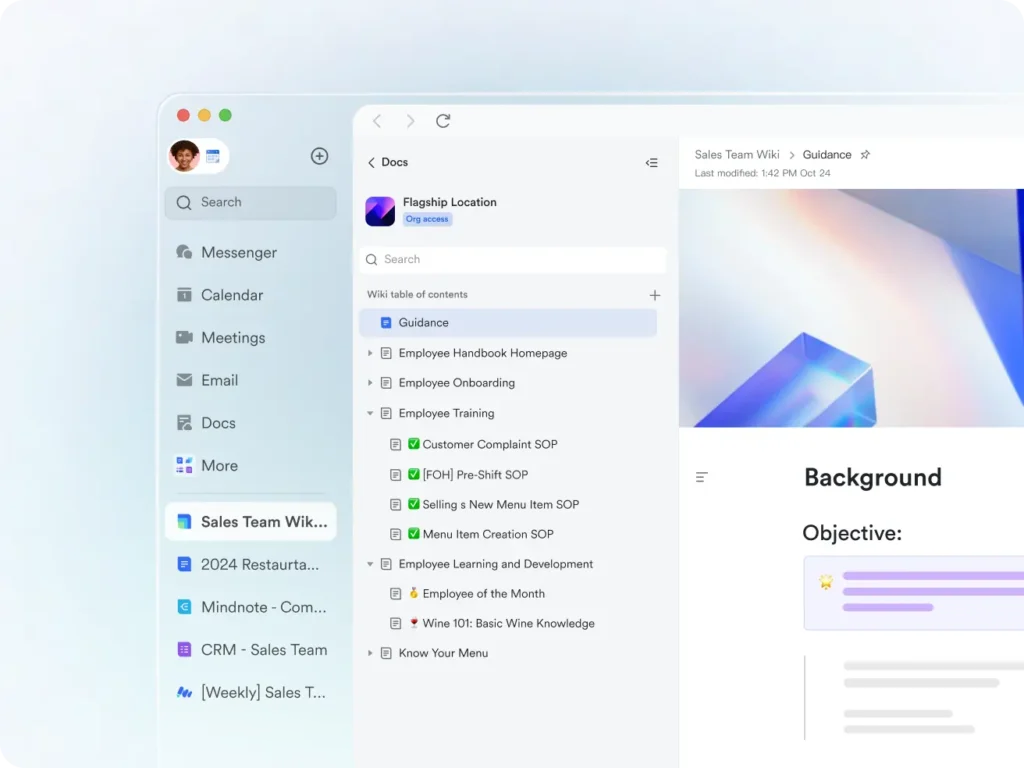
People don’t just know things; they learn things by working together. Employees may work together in real time to produce strategies, reports, and project notes with Lark Docs. This makes sure that everyone’s input is kept and recorded. Version history shows how ideas matured and decisions were made, so successors can see this.
- Real-time co-editing: Everyone’s contributions are saved in the same document, which makes everyone feel like they own it.
- Version history: Every modification is saved, so new team members may see how decisions were made.
- Tasks and comments: You can make comments into tasks that are still tied to the material.
Lark Wiki: Creating a living knowledge hub
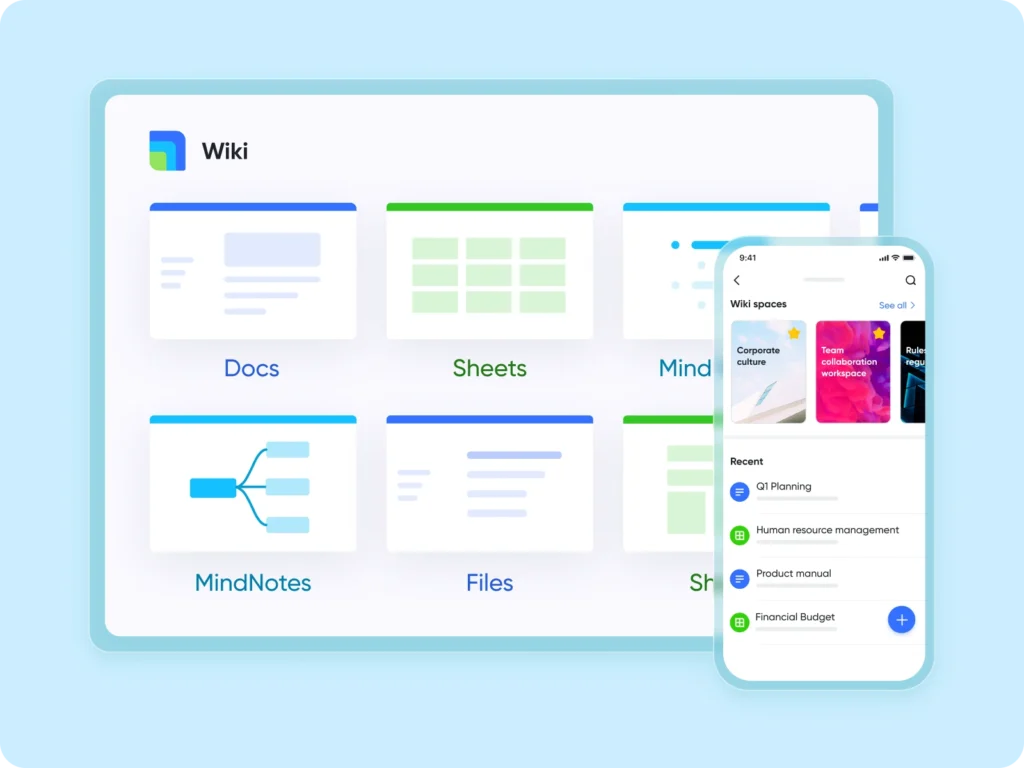
Employees often leave with knowledge that isn’t written down. Lark Wiki helps businesses avoid this by letting them search for policies, onboarding guidelines, and best practices. Instead of having to ask individuals to explain things, new team members may access consistent, up-to-date documentation that helps them get up to speed quickly.
- A central place to store everything: All of the training materials, FAQs, and other information are in one place that is easy to discover.
- Searchable archives: Employees can instantly locate answers to common questions without having to wait for support.
- Editing together: Teams work together to make changes and improvements to Wiki pages so that the material is always correct and helpful.
Lark Approval: Closing loops with accountability
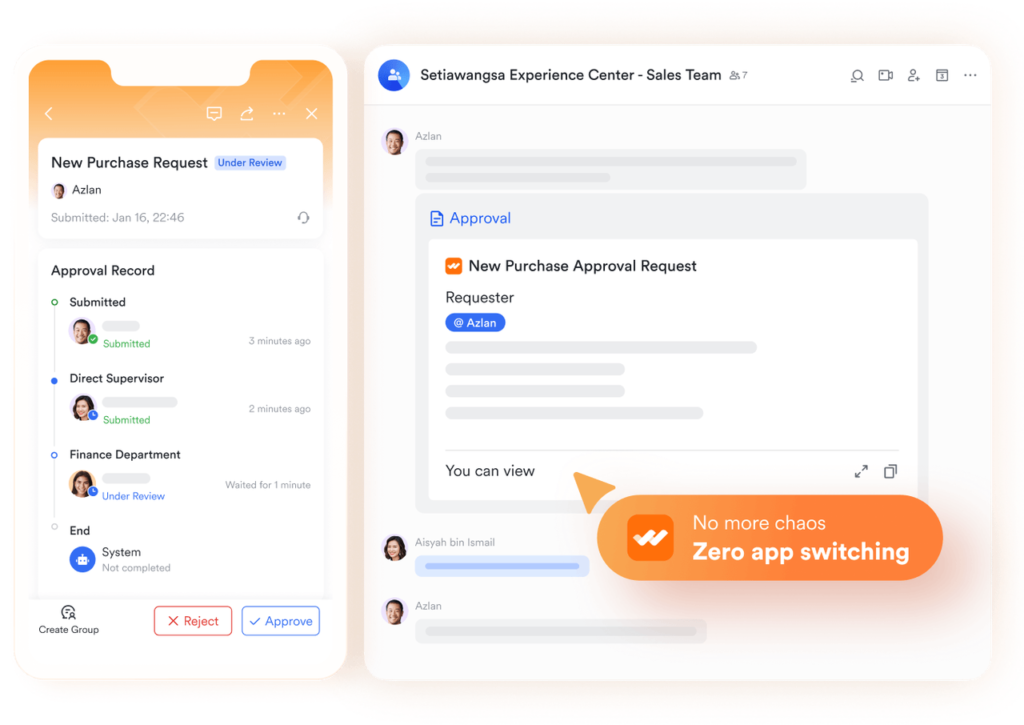
When teams change, it’s easy for approvals or decisions that are still pending to be lost in the mix. Lark Approval keeps things moving by giving requests and sign-offs clear rules to follow. This way, things keep going even when people depart. Clear records also demonstrate who made what choices and when they did so.
- Structured requests: Workers can make the same requests for project changes, expense claims, or handover approvals every time.
- Making workflows automatic: An automated workflow distributes approvals right away to the right people, which helps things go along.
- Decision logs: Every approval is logged, so others who use the system in the future may see what has been done and what still has to be done.
Lark Messenger: Retaining context in communication
A lot of what a company knows comes from its conversations. Lark Messenger retains this context by letting employees depart and yet have access to discussion logs, shared files, and noted topics. This uniformity makes sure that important information doesn’t get lost in personal inboxes or private notes.
- Persistent history: Successors can look back at past conversations to understand how decisions were made and what the situation was like.
- Sharing files in context: When you transmit a document using Messenger, it stays tied to the discussion where you submitted it.
- Pinned messages: Important information stays highlighted, which makes it easier to access when things change.
Lark Meetings: Capturing knowledge beyond attendance
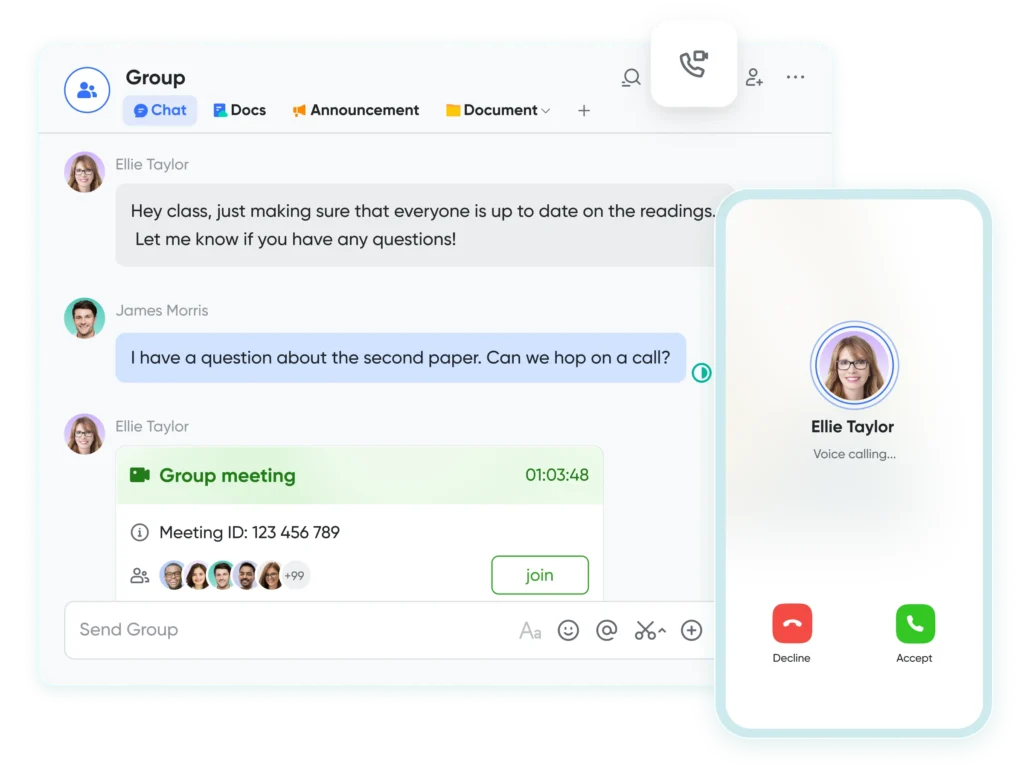
Most of the time, people don’t write down what they learn in meetings. With Lark Meetings, businesses may record meetings, take notes during them, and share them with colleagues who weren’t there. This makes sure that the information and choices made in talks are still available even after team members leave.
- Recordings and replays: Meetings are recorded so that new employees can listen to crucial conversations again.
- Collaborative notes: Action items and feedback are jotted down as they happen and preserved with the meeting.
- Connected workflow: You can add notes and recordings to projects that are related to them, which keeps them valuable for work that is still going on.
Conclusion
One of the hardest things for firms is to keep their knowledge when they change. Base stores all of your organized records in one place, Docs enables people to work together, Wiki is a living hub, Approval makes sure that decisions are the same every time, Messenger retains the context of talks, and Meetings keep track of what people are talking about. All of these tools help teams keep track of what they know as they pass it on.
Putting knowledge on digital platforms can help businesses maintain things running smoothly, speed up the onboarding process, and eliminate complications when things change. Workers can change jobs without worrying about their work being interrupted, and managers can be comfortable that the team’s knowledge stays with the full team.
Also Read-Paper Bottles: A Sustainable Leap in Pulp Molding Technology
